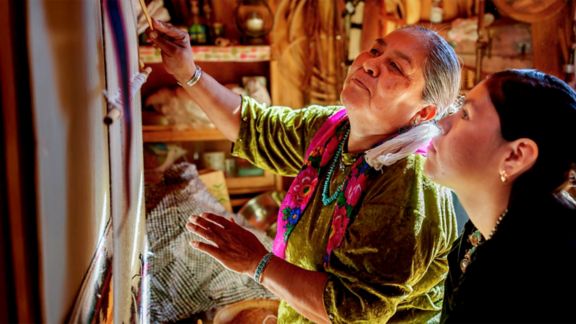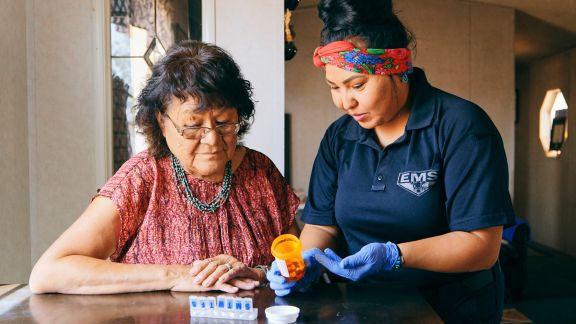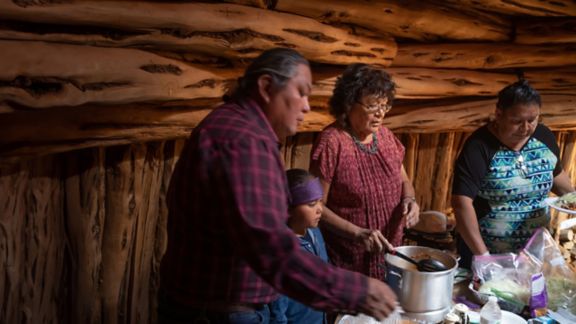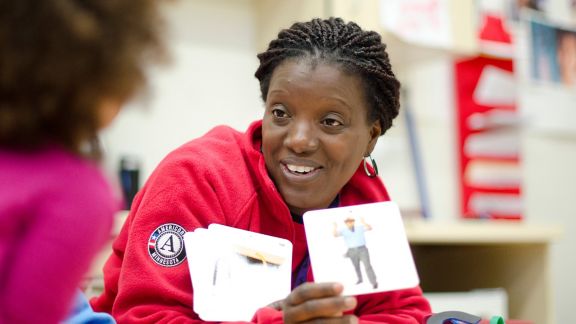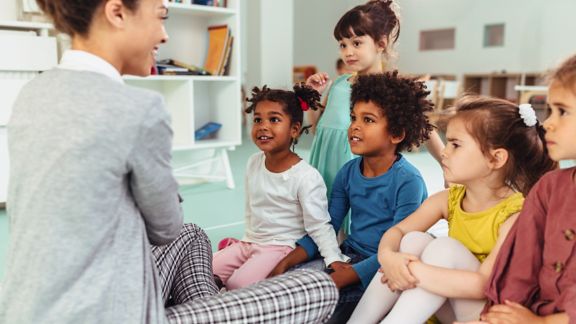Carol Hafford

As an applied anthropologist, Carol conducts research and evaluations to address social needs and solve practical problems, with an explicit focus on understanding the history, assets, and needs of people and communities. Carol has conducted studies in multiple policy areas, including early childhood and child welfare, youth transition to adulthood, workforce development and self-sufficiency, housing and homelessness, food security, and family and community strengthening. She values collaborative and multidisciplinary research.
Her research interests include two-generation approaches to support family well-being, along with career pathways programs with supportive services to promote education attainment and sustained employment. Areas of methodological expertise include applied research, human-centered design, conceptual frameworks, measure development, qualitative data collection and analysis, mixed-method approaches, comparative case studies, process and outcome evaluations, implementation science, and survey research.
Carol is a senior advisor for Head Start Connects, a study of family support services (ACF), and contributes to several NORC’s Head Start studies, addressing children’s transitions to kindergarten, workforce composition, and financing in mixed-delivery ECE systems. She led the utilization-focused Early Childhood Training and Technical Assistance Cross-system evaluation (ACF), and recently led a project to understand state and local early childhood workforce data systems (ASPE).
Over the past decade, Carol has engaged with tribal nations to build partnerships and conduct studies that respect sovereignty, tribal ways of knowing and scientific rigor, and share knowledge. Recently, she led the Tribal Health Profession Opportunities Grant (HPOG) 2.0 evaluation (ACF), building on her work with Tribal HPOG 1.0. For the Tribal TANF and child welfare coordination study (ACF), she documented grantees’ systemic approaches to service coordination. Carol led two nationally representative surveys in Indian Country, an assessment of American Indian and Alaska Native housing needs and conditions (HUD) and participation in the Food Distribution Program on Indian Reservations (USDA FNS).
Before joining NORC, Carol was a senior research associate at a consulting firm where she conducted studies on child welfare, including home- and community-based maltreatment prevention; tribal family preservation and support; foster care and permanency, including infant-toddler Court Teams; Quality Improvement Centers; state Court Improvement reforms, and development of youth outcome measures to support the successful transition to adulthood.
Previously, Carol conducted ethnographic research on the children of immigrants and family support networks, community-based art programs, and transitional living programs for runaway and homeless youth.
Quick Links
Education
PhD
Columbia University
MPhil
Columbia University
MA
Teachers College, Columbia University
BA
Hunter College, CUNY
Appointments & Affiliations
Fellow
Society for Applied Anthropology
Vice Chair
U.S. Census Bureau National Advisory Committee on Racial, Ethnic, and Other Populations
Project Contributions
Publications
-
“Designing for Wellbeing: Community-Centered Tools for Transforming Shelter and Other Community Spaces to Promote Mental Health and Healing.”
Project Report | September 1, 2024
-
“Final Evaluation Report: Environments Promoting Wellness and Resilience (EmPWR) Evaluation.”
Project Report | September 1, 2024
-
Research Reveals Opportunities for Easing the Transition to Kindergarten
NORC Article | December 11, 2023
-
"Understanding Cross-System Transitions from Head Start to Kindergarten: A Comparative Cross Case Study of Head Start and K-12 Partnerships"
Project Report | September 1, 2023
-
Systems-Level Strategies to Facilitate Kindergarten Transitions: Key Study Findings and Examples from Case Studies of Head Start & K-12 Partnerships
Research Brief | September 1, 2023
-
Child Care and Development Fund Equity Assessment Toolkit
Project Report | March 1, 2023
-
Survey of Head Start Grantees on Training and Technical Assistance: Design and Data Collection Methodology Report
Project Report | September 1, 2022
-
opens in new tab"Implementation of Tribal HPOG 2.0: Integration of Tribal Culture into Healthcare Training Programs."
Project Report | February 9, 2022
